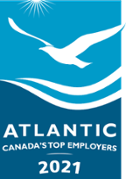The University of New Brunswick in Saint John, as part of their Integrated Health Initiative, invites applications for a tenure-track position in Indigenous Health at the rank of Assistant Professor, commencing July 1, 2022 or a mutually acceptable date thereafter.
The Integrated Health Initiative (IHI) focuses on health education and research, social innovation, and interdisciplinary collaboration and includes a newly developed Bachelor of Health program. In addition to interdisciplinary courses in topics relevant to health, the program includes three majors: Biomedical Sciences and Health, Society and Health, and Management in Health. Given the strong links with the Faculties of Arts (Departments of Humanities and Languages, History and Politics, Social Sciences), Business (any business discipline with a focus in the health context i.e., Digital Health), and Science, Applied Science, and Engineering (Departments of Biological Sciences, Computer Science, Mathematics and Statistics, Nursing and Health Sciences, Psychology), the successful candidate will have complementary teaching and research to one of these departments. In addition to the potential for interdisciplinary collaborations at UNB Saint John, the successful candidate will be encouraged to partner with the Saint John Indigenous Health Advisory Circle, Horizon Health Network (including, Saint John Regional Hospital, which is the largest hospital in Atlantic Canada), and Dalhousie Medicine New Brunswick. Established relationships with Indigenous Health Initiatives such as that of the Wolastoqey Tribal Council would be an asset.
The successful candidate will teach undergraduate courses in the Bachelor of Health, such as: Indigenous Health Determinants; Health from a Global Perspective; and Transformation through Collaboration and Innovation. Candidates will also develop courses in their area of expertise within the biomedical sciences, social sciences, business/management, or the humanities that focus on the health of individuals, populations, and communities. The supervision of undergraduate research (e.g., Honours theses) is required. Opportunities to participate in relevant graduate programs, including the supervision and teaching of graduate students, is expected.
This position is for an Indigenous scholar. Candidates must have minimum of a Masters degree in Health or a related area; a PhD is preferred. Candidates will be expected to have expertise or experience in Indigenous health determinants. Applicants from cognate fields with the required expertise or experience in Indigenous health determinants will also be considered for this position. This position will uphold UNB's commitment to increasing the representation of Indigenous individuals and thus, preference will be given to Indigenous applicants.
Applicants are requested to submit electronically (as a single PDF) a curriculum vitae, statement of their research interests, the names and addresses (e-mail and telephone number) of three referees, and a teaching dossier (that includes evidence of teaching competence, as indicated by teaching evaluations, testimonials from individuals familiar with the candidate's capabilities) to Dr. Mercy Oyet, Coordinator, Bachelor of Health at Mercy.Oyet@unb.ca. Applicants should indicate which UNB Saint John faculty and department aligns best with their primary research interests as well as whether they are a Canadian citizen or permanent resident of Canada. Review of applications will begin on June 1, 2022 and continue until the position is filled.
Short-listed candidates will be required to provide satisfactory proof of credentials including appropriately certified translations of credentials into English, as applicable.
The University of New Brunswick is committed to employment equity and fostering diversity within our community and developing an inclusive workplace that reflects the richness of the broader community that we serve. The University welcomes and encourages applications from all qualified individuals who will help us achieve our goals, including women, visible minorities, Aboriginal persons, persons with disabilities, persons of any sexual orientation, gender identity or gender expression. Preference will be given to Canadian citizens and permanent residents of Canada.


